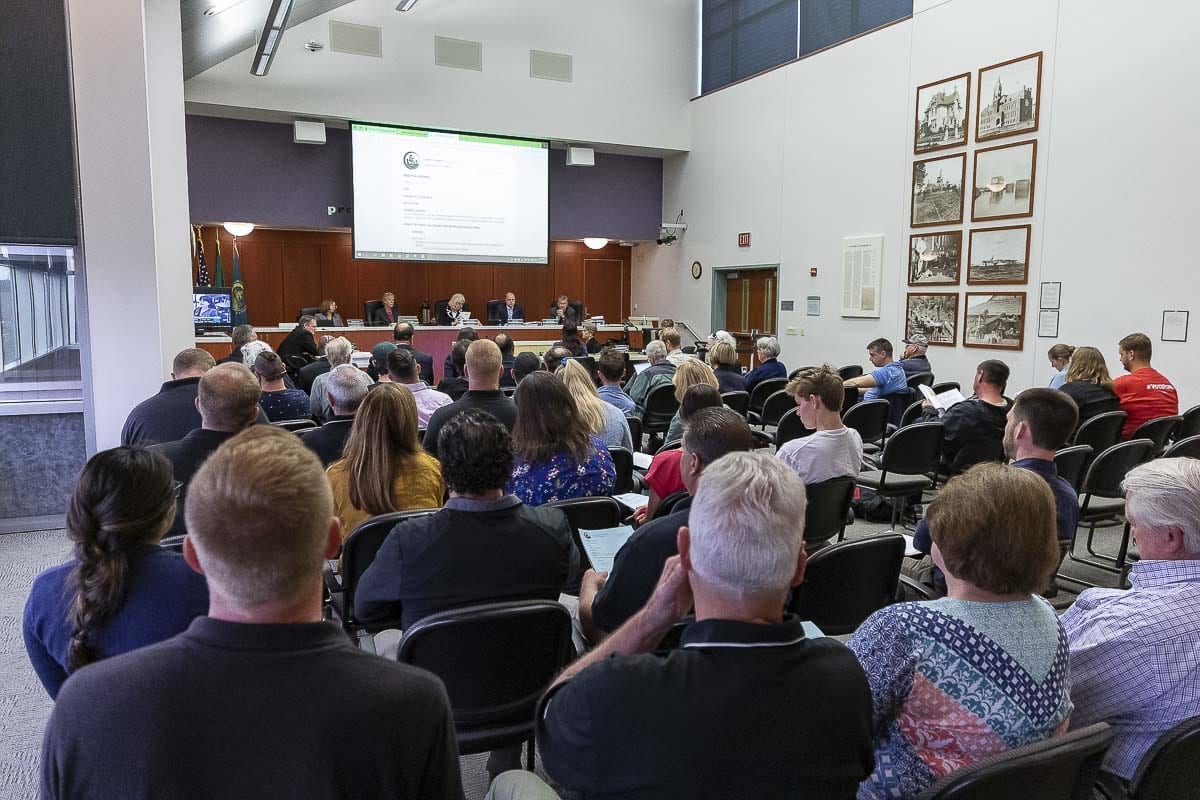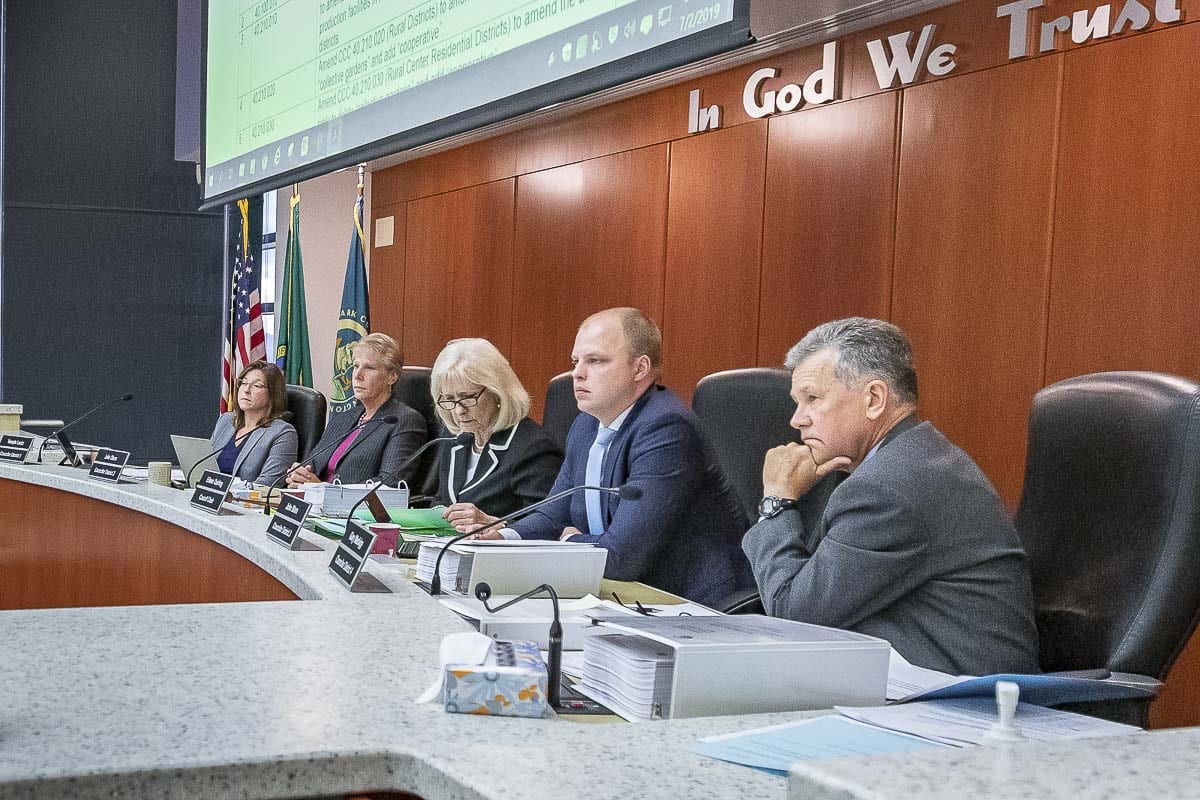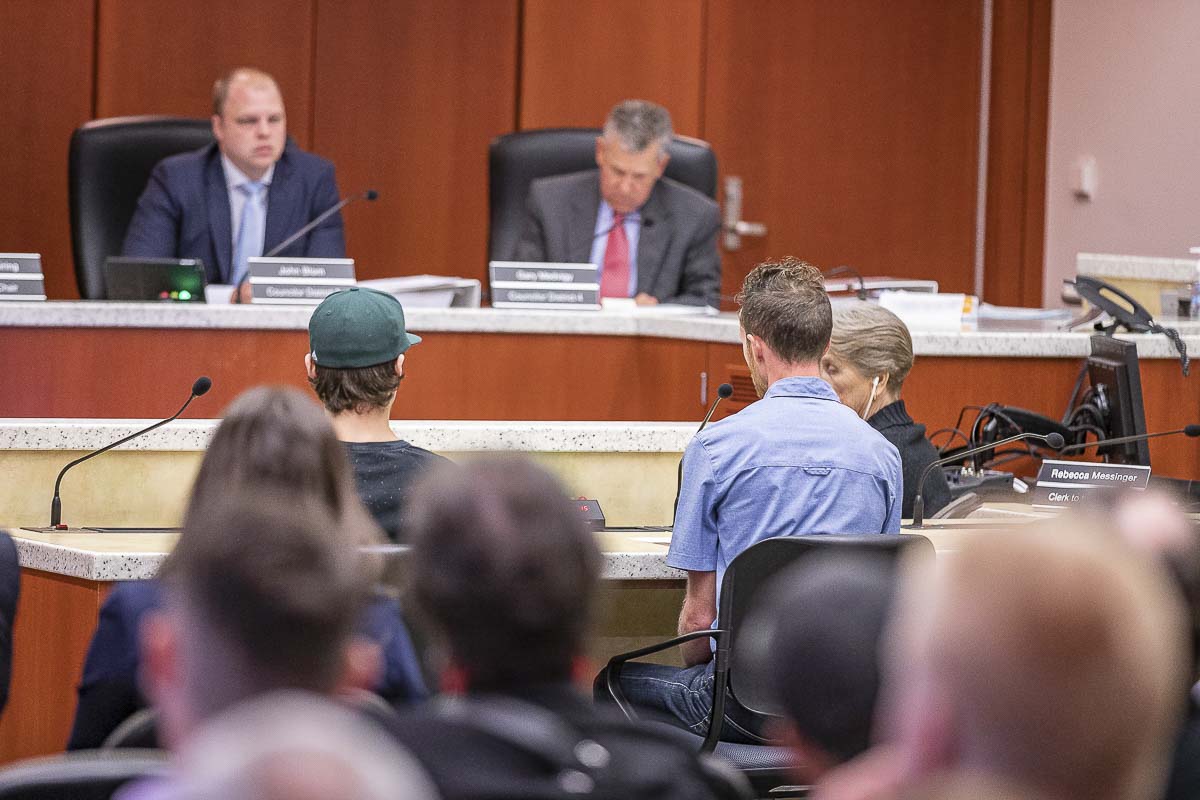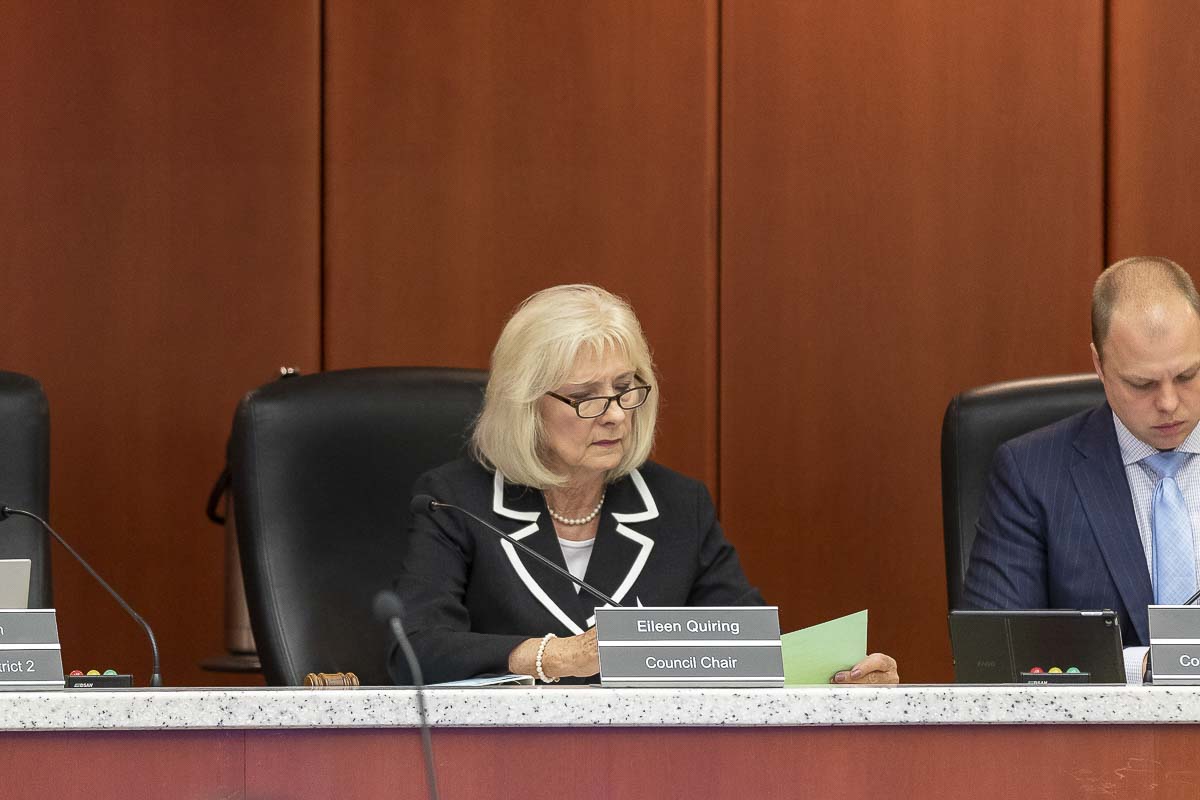The 3-2 vote will allow cannabis businesses in the unincorporated areas starting in January, 2020
CLARK COUNTY — After months of deliberation, the Clark County Council voted 3-2 on Tuesday evening to end its 2014 ban on cannabis-related businesses in the unincorporated parts of the county. Under the amended ordinance, businesses selling or producing marijuana will be allowed starting Jan. 1 of next year.
The council also approved reducing the restriction boundaries for marijuana retailers to 500 feet for everything but elementary and secondary schools, along with public playgrounds. For those two locations the buffer will remain at 1,000 feet, as mandated by state law. The council kept a 1,000-foot buffer county-wide for marijuana producers and processors.

Councilor Julie Olson, who requested the buffer reduction amendment, said she believes it would allow more potential locations, reducing the chance retailers would end up bunched together.
There was some discussion over whether the reduced buffer distance had been intended to benefit one retailer. Though no names were mentioned, the only retail establishment with an existing permit in Clark County is Sticky’s Pot Shop, which operated a location on Highway 99 in Hazel Dell for several years in defiance of the moratorium. With the reduced boundary distance, Sticky’s should be able to resume operations at their existing location.
Sticky’s owner John Larson addressed the council during 45 minutes of public testimony.
“I want to thank this council for taking the time to study the issue and make, what I believe, are the correct policy changes,” said Larson. “And I commend the council for having the courage to do the right thing, and reject the ignorance and hysteria that has dictated recreational marijuana policy up to this point.”
Cory Jarrell, an employee of Sticky’s, also testified that allowing it to reopen would benefit his family and bring more living wage jobs to the county.
Testimony also included at least half a dozen recovering drug addicts from Freedom House Ministries, most of whom testified that marijuana had been a gateway drug for them into deeper addiction and a life of crime.
“I think that the stand that was made in 2012 was honorable,” said Freedom House founder Jim Cottrell. “And I think if you move away from that, the county will suffer.”

Others, like Madison Langer, a recent Ridgefield High School grad and current member of Prevent Coalition, worry that allowing students easier access to pot could lead to more use, and confusion over why they’re not allowed to use it when their parents might be.
“We know from the research that youth who believe that their community do not support marijuana are less likely to use,” she told the council. “So the question is simple: as a community, do we support youth using dangerous substances.”
Langer, like several others, testified that she had become addicted to marijuana and struggled to get free of the substance.
During their comment period, councilors Temple Lentz, John Blom, and Julie Olson responded to some of those concerns, while acknowledging the many recovering addicts who spoke out.
“Not everybody in our community suffers from addiction and is susceptible to addiction, and different substances affect different people in different ways,” said Lentz, while noting that District 1, which she represents, voted to approve Initiative 502 in 2012, which set the wheels in motion to allow for recreational marijuana in Washington state.
Others noted that a vote to legalize the sale of marijuana did not mean they were advocating for easier access to the drug by underaged users. Councilor Olson noted that tax revenue from sales of the drug could be used to help fund substance abuse treatment programs, specifically for young people.
Olson also cited several studies that indicated to her the legalization of marijuana has had no overt detrimental impact where it has been allowed. The increase in crime, she said, was similar to that around any new liquor store or restaurant that sells alcohol and, in fact, tends to be less violent than around those kinds of establishments. Another study commissioned by the state’s Liquor Cannabis Board (LCB), said Olson, showed no marked increase in substance abuse treatment admissions or use of marijuana by youth in the wake of legalization.
“Our community has changed in the last seven years,” noted Olson. “Nationally, support for cannabis and marijuana legalization is at about 65 percent. It’s 72 percent among Democrats, 66 percent among independents, and 56 percent among Republicans in a recent CBS survey and poll.”
Councilor Gary Medvigy, who is running for re-election in the highly conservative Fourth District, said his 30 years in the criminal justice system taught him that marijuana is, indeed, a gateway to worse addictions and criminal behavior.
“This notion that it’s not a gateway drug is a false narrative,” Medvigy said. “And I’ve had cases with psychotic breaks and multiple murders with butcher knives from marijuana. The incidences across the United States of these psychotic breaks is real.”

The retired judge did say that he would like to see the Federal government remove marijuana as a schedule one controlled substance, so that more tests can be done over the potential medical benefits of the drug.
“We are experimenting with our population going forward if we lift this ban here,” said Medvigy.
Councilor Blom responded to Medvigy’s stories of pot-induced crime by saying “to me that just says we’ve had failed policy for the last 30 years that prohibition has clearly not been an effective deterrent for all of the negative reasons and all of the problems that many of the individuals that talked about their own experience. It’s been illegal, and yet we still have all of these problems.”
Blom also noted again that marijuana has been legal in the cities of Vancouver and Battle Ground since the law was passed, and that lifting the moratorium outside those areas would still only allow new retail establishments within the Urban Growth Boundary.
“So for the majority of the citizens in my district there is no change,” said Blom.
Council Chair Eileen Quiring said she was disappointed that there wasn’t a more public process leading up to the vote, to get a better sense of whether opinions on legalized marijuana had really changed from 2014. She said several teachers had expressed concerns about marijuana use, saying their personal experiences show use of the drug by teenagers leads to lower test scores and reduced initiative to learn.
“You can pick and choose your statistics, but I fear we’re putting the county in a precarious position,” said Quiring, “and I’m sad about it.”
Quiring and Medvigy also lost an attempt to keep the hours of operation for marijuana retailers from being expanded to match Vancouver, where they can stay open until 11 p.m. State law originally only allowed them to be open as late as 8 p.m.
The overturn of the ban comes against the advice of the Clark County Sheriff’s Office, and the county’s Public Health department. Both testified in earlier work sessions that they believe the drug causes crime levels to rise, and presents an unknown public health risk to some vulnerable members of the community. The Sheriff’s office has said they will decline any funding that comes from tax dollars raised by the sale of marijuana.

What happens next?
Clark County Community Development Director Mitch Nickolds asked the council for at least 60 days to prepare for implementing the ordinance and code changes to allow marijuana. The council ultimately decided to hold off implementing the change until the start of the new year.
Currently, there are only three permits held in unincorporated Clark County for marijuana-related businesses, and the state is not issuing new permits at the moment, so it’s unlikely there will be an explosion of cannabis business within the county. The adopted development code would ban any marijuana-related businesses within the proposed Freight Rail Dependent Uses zoning area along the Chelatchie Prairie rail line through Brush Prairie.
The county also added substance use disorder treatment centers to the list of locations that marijuana retailers can’t be sited within 500 feet of. The list also includes public recreation centers, including the Clark County Event Center, parks, transit centers, daycares, libraries, churches or religious facilities, and gaming arcades that allow anyone under the age of 21. Primary and secondary schools, as well as any public playground must be at least 1,000 feet from any retailer per state law. Marijuana producers and processors must be sited at least 1,000 feet away from all of those locations without exception.




